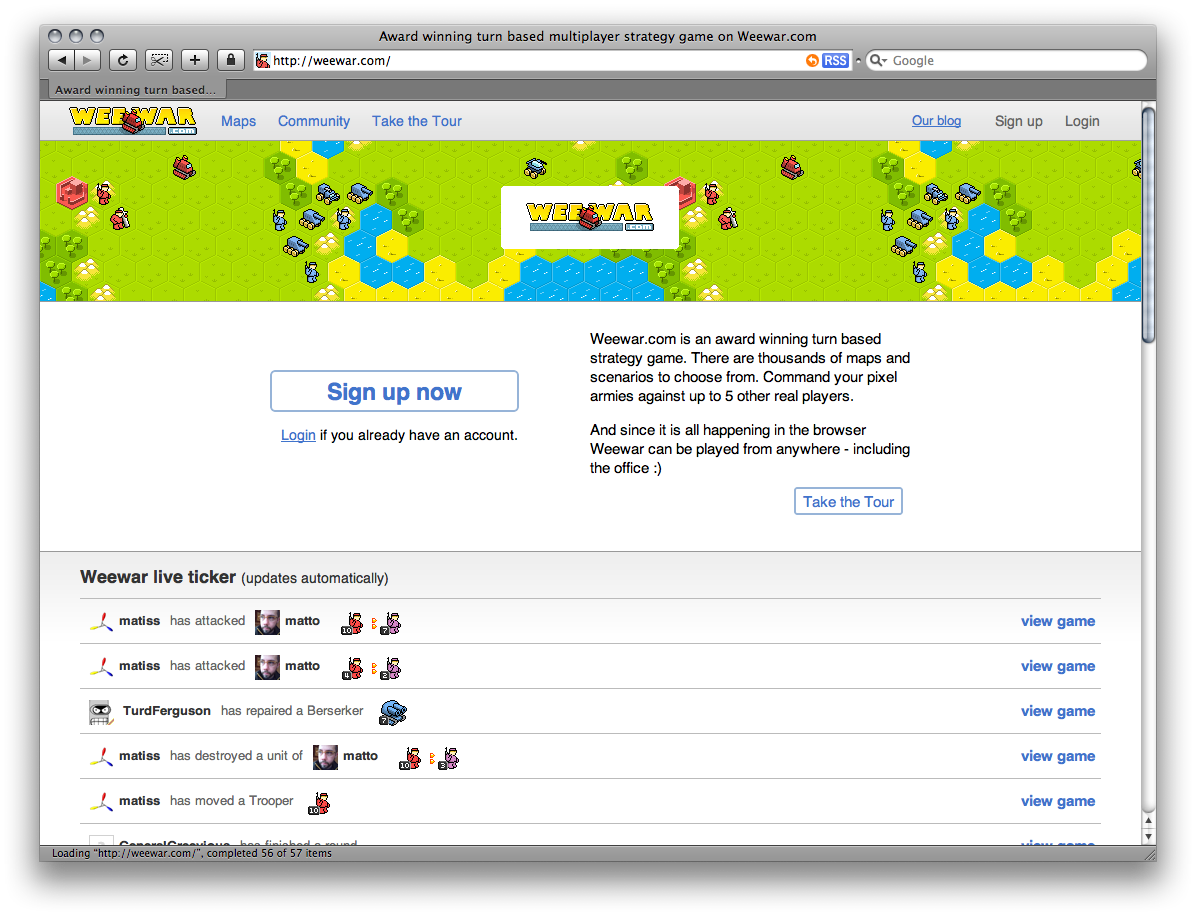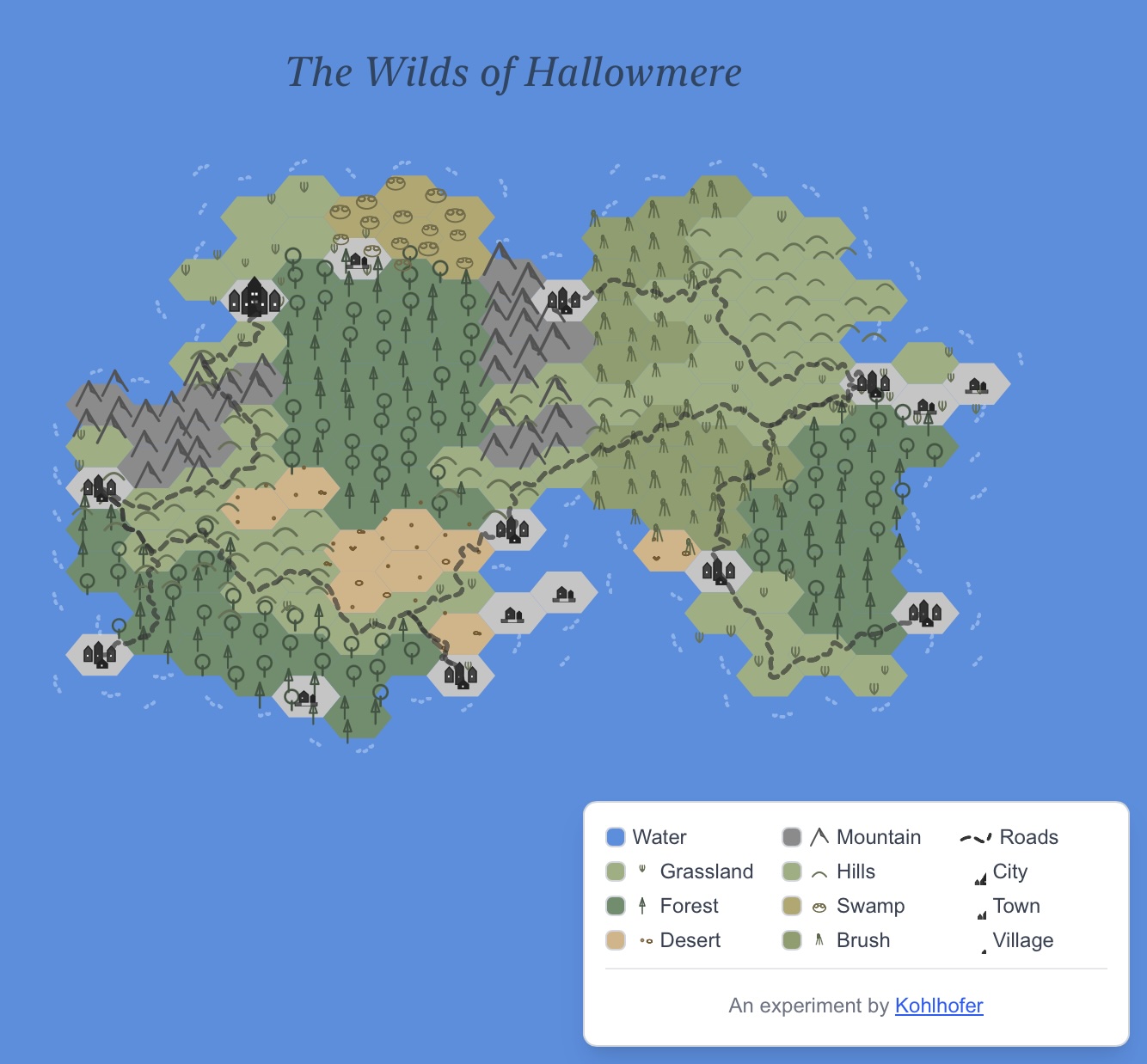Working on a little playful hex map generator just brought back a host of fond memories. For those who might remember, Weewar was a turn-based strategy game I created in the mid-2000s that was among the earliest browser-based gaming experiences. With thousands of active players, it broke new ground with its open API that enabled academic research (into AI, no less!) and countless maps the community generated.
The Spark of Nostalgia
I just shared this hex map generator as part of my kohlhofer.com/bits collection, and found myself drawn back into the familiar patterns of hex-based game design. There’s something deeply satisfying about the mathematics of hexagonal grids—the way they tessellate, how movement and adjacency work, the elegant simplicity of it all.
This little sketch generates Tolkien-esque fantasy landscapes with rolling grasslands, dense forests, towering mountains, mysterious swamps, and vast deserts. Cities, towns, and villages appear strategically placed across the map, connected by winding road networks that feel natural and purposeful. Each click brings a new world to life.
Remembering Weewar
At a time when browser games meant simple Flash animations or basic JavaScript, we built something that was rooted in modern web technology. It got a lot of attention in the Silicon Valley tech scene, who was otherwise pretty uninterested in the world of gaming. Anecdotes like tanking the productivity in the Flickr offices helped with that.

Weewar’s success ultimately caught the attention of Electronic Arts, who acquired it—a validation that what we’d built had real value in the emerging world of web-based gaming. This also kicked off my second stint of living and working in the US.
Fun Fact
Can you imagine that I started Spreedly.com in part so we could collect payments in Weewar? The payment landscape back then was so fragmented and complicated that we ended up building our own solution just to handle subscriptions and premium features. What started as a necessity for our game eventually became a payment juggernaut transacting billions of dollars.
Looking Forward
What surprises me most is how this little exploration has rekindled my appetite for game development. There’s something about hex grids, strategic thinking, and building worlds that still calls to me after all these years. Maybe it’s time to revisit that space—not to recreate Weewar, but to explore what modern web technologies and over a decade of additional experience might bring to the table.
You can play with the hex map generator yourself and see if it sparks any creative ideas for you too. Sometimes the best way forward is to remember where you’ve been.
For fellow Weewar veterans who might stumble across this—thank you for being part of that incredible journey. The game may be gone, but the memories and lessons learned continue to inspire new projects.



